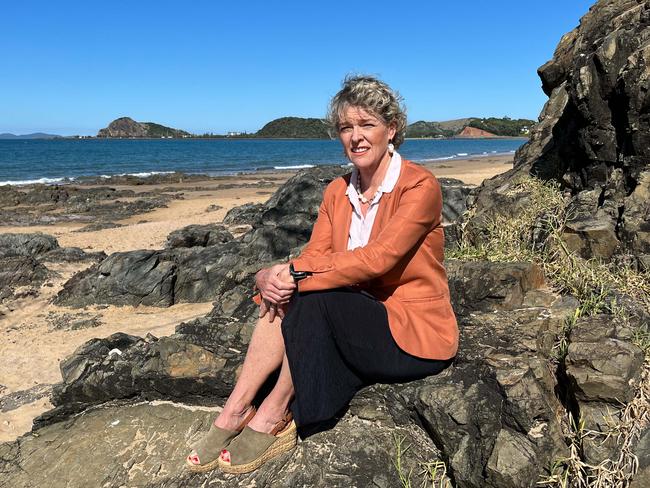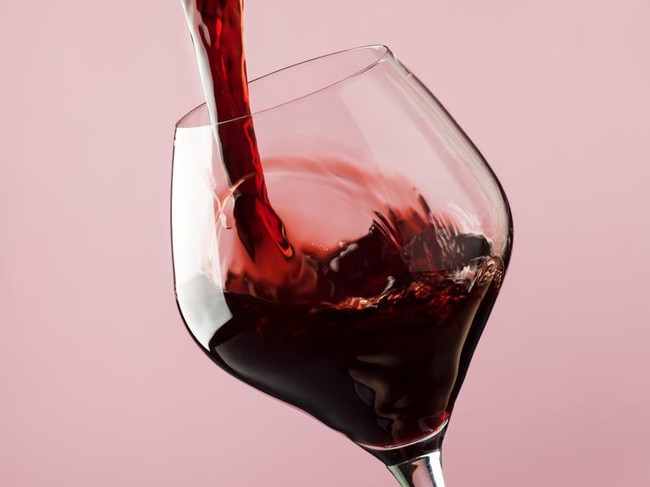
AI gives hope for sufferers of severe heart problem
New AI software can improve the diagnosis of severe aortic stenosis by 72 per cent and could potentially change the lives of about 50,000 Australians who are misdiagnosed each year.

New AI software can improve the diagnosis of severe aortic stenosis by 72 per cent and could potentially change the lives of about 50,000 Australians who are misdiagnosed each year.

Scientists from around the world have joined thousands of tourists in descending on the remote WA town of Exmouth ahead of Thursday’s total solar eclipse. Here’s where to see it.

Solar eclipse chasers are descending on one Aussie state to witness the first total solar eclipse in more than a decade. Watch live stream.

The rate of breast reconstruction following mastectomy has increased 126 per cent in the past decade, and researchers credit how the procedure is now discussed as part of a breast cancer treatment plan.

Michael Clancy had never experienced mental illness in his life until he witnessed the 2016 Dreamworld disaster up close. A DNA test might have revealed how badly it would affect him.

More than 60 years after the contraceptive pill arrived, scientists are finally making progress towards a male equivalent.

An international scientific journal has rebuked claims that the livestock industry is incompatible with combating climate change and that human diets should restrict red meat consumption.

Doctors and researchers at Google, MIT and more forecast advances they see coming for health and wellness.

Researchers discover connections in the brain linked to epileptic seizures, raising hopes of better treatment for drug-resistant epilepsy.

FOI documents show record temperature claims by the Bureau of Meteorology might be wrong.

Experts have issued a plea for an overhaul of Australia’s outdated guidelines on screening for cardiovascular disease, which fail to detect many patients at risk of having a sudden heart attack.

Cardiologists want this simple test to be used more widely to prevent the most common cause of death in Australia.

Analysis shows open landscapes may have existed 10 million years earlier than thought, challenging the idea that shrinking forests led to humans walking upright.

The 56-year-old from Guangdong fell ill on February 22, was hospitalised for severe pneumonia on March 3 and died on March 16.

High Intensity Interval Training is being challenged by the new trend of ‘Zone 2’ lower intensity training. Adherents claim it will make you burn more fat and even improve longevity – but is true?

At just 45, father of four David Webb was diagnosed with stage 4 prostate cancer; six years later, he’s alive and still fighting.

India’s tigers have made a roaring comeback in the 50 years since a project was launched to save them from extinction.

Cyber security experts say criminal gangs and state actors are targeting the healthcare sector at an ‘accelerating’ rate because of high ransom and research theft possibilities.

The final tally of the 93rd Good Friday Appeal was revealed at midnight – $23,061,320 to help Melbourne’s Royal Children’s Hospital and its young patients.

For McKenzie Stanforth and so many other children, the Good Friday Appeal is the most important day of the year.

Anna Barron was always fascinated by neuroscience and her discovery of a ‘metabolic’ switch in the brain could unlock groundbreaking new treatments for Alzheimer’s.

Red wine good for the heart? Pour out another shiraz! Sadly the glass a day theory can quite definitively now be described as bad science thanks to an analysis of hundreds of studies.

About one in every six adults experiences infertility, regardless of where they live and how wealthy they are, the World Health Organisation estimates.

New research links low bone density to a decline in brain function. Here’s what the experts recommend to keep your skeleton strong.

Scientists camped in the Arctic are set to start drilling to save samples of ancient ice for analysis before the frozen layers melt.

Besides putting the first woman and first person of colour on a moon mission, the US space agency hopes to establish a lasting human presence on the lunar surface.

People who are overweight are flocking to the drug Ozempic to slim down. Looming is an even more powerful weight-loss treatment.

Up to a third of children with cancer are likely to be able to be treated with immunotherapy in a development that is hoped will increase kids’ chances of survival and lessen the risk of long term impacts of chemotherapy.

Australian salmon producers have confirmed using Antarctic krill in fish feed, as a leading scientist quits the krill industry’s expert panel, concluding krill harvesting is “wrong” and should be banned.

Australia is launching a globally significant research campaign in remote Antarctica to understand a ‘canary in the coal mine’ of catastrophic climate change: a glacier holding 1.5m of potential sea level rise.
Original URL: https://www.theaustralian.com.au/science/page/17